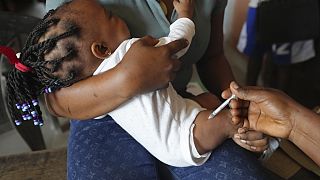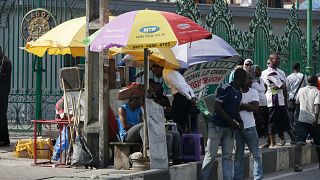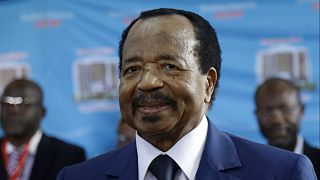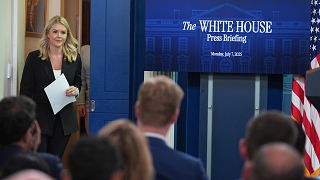Cameroon
Separatists who torched several buses and blocked access to the Northwest region, have said it is part of their plan to disrupt the October 7 elections and prevent military reinforcement from other regions.
A dusk to dawn curfew was imposed in the region on Sunday, after over 20 passenger buses were blocked at Akum on the outskirts of Bamenda Sunday morning, with some partially damaged.
Northwest governor Adolphe Lele Lafrique said the curfew between 6pm and 6am from Sunday will remain effective till further notice.
“During the said period, movements of vehicles, persons and goods shall be strictly forbidden. All off licences, snack bars and night clubs shall remain closed….and night travel suspended,” the governor’s order reads.
The restrictions do not apply to administrative authorities, law and order agencies, persons and vehicles in possession of special authorisations and ambulances.
The use of curfews has been frequently employed by the authorities in the tywo English speaking regions of Cameroon.
Separatists plan to disrupt election
Separatists claimed responsibility for the Sunday morning attack that left one driver dead, several people injured, and five buses torched.
They also blocked the road using an excavator from the company renovating the road linking Bamenda to Bafoussam, nearly 80 km to the south.
The Northwest and Southwest regions are at the heart of the Anglophone crisis, where separatists under the so-called Ambazonia republic are seeking to breakaway from French-majority Cameroon.
The separatists have warned that they will not allow any election organised by the Yaounde government in ‘their country’.
Nine candidates including the incumbent, Paul Biya, are contesting the presidential election scheduled for next month. Anglophone crisis
The unrest is unfolding in the Anglophone regions, home to most of Cameroon’s English-speaking minority, which account for about a fifth of a population of 22 million.
Years of resentment at perceived discrimination at the hands of the country’s French-speaking majority culminated in protests in October and November 2016, which escalated in the face of a government refusal to make concessions.
In late 2017, violence surged after radicals declared an independent state, an entity named Ambazonia that has not been recognised internationally, and launched an armed campaign, which met with a crackdown.
ALSO READ: Cameroon gov’t says Anglophone separatists killed 81 officers, seeks $21m emergency aid












Go to video
Over 40 killed in attack on Sudanese hospital: WHO Chief condemns “Appalling” strike
Go to video
Togo suspends French state-owned broadcasters RFI and France 24
Go to video
Protesters gather in Ivory Coast, demand Thiam's return on electoral list
11:14
Rwanda Walks Away: what’s behind the Central Africa rift? [Business Africa]
01:25
Burundi awaits results of local and parliamentary elections
01:12
Cameroon tops list of world's most neglected displacement crises